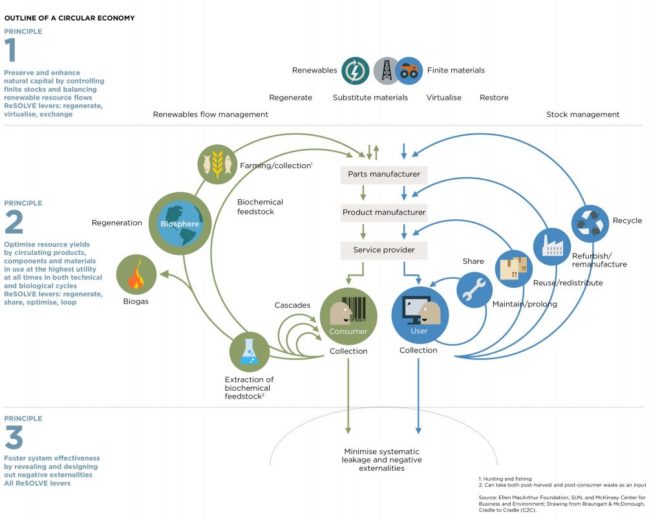-
Phone Number
-
Email Address
And it all started with the multifaceted economist and businessman Belgian, Gunter Pauli, creator of the economy blue ( Blue Economy ). He proposes to copy to the nature to achieve more efficiency. a hundred of business projects that cover various sectors of the economics show that a business model is possible sustainable and highly competitive with environmental benefits, financial and social... Are we inspired by nature?
According to Pauli … “consumers will be able to recover their ability to decide what they want and change the current mode of global production, which generates large amounts of garbage, unemployment and failed governments» . Although it has its similarities with the concept of circular economy, we are going to dig a little more…
Content menu:
It is a holistic and innovative concept in the approach business: we just have to emulate natural ecosystems to be efficient in the production of goods and services that citizens need to be happy, responsibly shared and respect for future generations.
The theory embodied in the book "The Blue Economy" de Pauli, faces a problem of significant proportions Worldwide. Intends to change the way we reason the environment, agriculture, manufacturing, waste...etc, in order to accentuate the circle of sustainable development with the planet , proposing a way of redesigning our entire way of living and leading it to resemblance of nature.
We must forget about chasing a single benefit. We want get everything that the production process offers us. The specialization, or economies of scale, do not work. It is about to take advantage, with an innovative attitude, a multitude of sources of income throughout our production process.
In this way, we maintain risks and reduce risks. costs. There is no point in trying to evaluate the by-product or eliminate the residue, these become opportunities for business and it is necessary that they be used by the businessmen take advantage of them.
The blue economy rejects the elitist attitude of the green economy that aims to offer ecological products that respect the environment but are only accessible to a conservationist elite with high purchasing power . Everyone: businessmen and consumers, we have access to the economy blue in a sustainable way.
To understand it better, we leave an excellent video from the famous TED talks where Gunter Pauli (Speaks Spanish) explains his perspectives…
Pauli launched the Zero Emissions Research and Initiative (Zeri). A global network to expand your ideas. From So, it has created 50,000 jobs and more than 1,500 companies, with projects such as the cultivation of edible mushrooms high quality with coffee residues, biodegradable detergents with remains of orange peel or the transformation of gas stations into stations to recharge electric vehicles.
The green economy requires that companies invest more and consumers pay more to obtain the same in exchange for preserving the environment. The blue economy is about understanding the waste as resources and seek solutions inspired by the nature design .
Gunter Pauli, defines the circular economy blue as the ability to respond to needs basic of all with what one has, introducing innovations inspired by nature, generating multiple benefits, including jobs and social capital, offering more with less.
The infographic produced by the Ellen MacArthur Foundation illustrates the concept.

The blue economy is based on several principles that distinguish a different way of seeing the business, sustainable entrepreneurship and innovations.
From the following link, you can see projects at the based on this trend.
As you can see in the principles of the Blue Economy , is an inspired current of forceful form in nature, which seeks avoid that waste, taking advantage of everything available from an intelligent, innovative and creative.
If you liked the article, rate it and share!